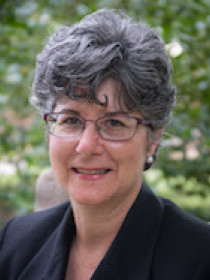
Cynthia L. Rogers
Connect with Cynthia
About Cynthia
Rogers does research that focuses on state and local public finance and economic development, with a special focus on methodological issues about the relationship between state tax policy and economic growth. She also uses Oklahoma data to analyze multi-tier, multijurisdictional taxation of retail sales. A common thread in her research is the development of estimation techniques to understand and evaluate the impact of public policies. She frequently shares her research in public forums about economic and tax issues in Oklahoma.
Contributions
In the News
Publications
Constructs a policy leadership index to classify jurisdictions as leaders or followers. Shows how asymmetric leader-follower dynamics characterize horizontal tax competition over the three decades that follow by using models that control for vertical tax competition effects.
Explores the relationship between the rising use of economic development incentives (EDI) and rising income inequality within U.S. states. Provides a normative argument for reducing inequality as a policy goal, an issue commonly ignored in empirical applications of inequality. Discusses the channels through which EDI policy can influence equality outcomes in a regional context. Estimates panel data models for 41 states from 2000 to 2009 using direct measures of EDI and three common measures of income inequality.
Considers whether the duty of care standard used in corporate governance should be applied to the public decision-making context regarding economic development incentives.
Investigates the impact of an increase in the state sales tax rate on the tax rates of local communities in an environment where both state and local governments impose sales taxes. Suggests that rural communities are negatively impacted by having a longer period between tax rate increases after a state sales tax increase. The larger, regional centers do not respond the same.
Presents a simple and generalizable procedure for estimating state-level marginal tax rates and provides estimates for all fifty states for the years 1977 to 2004. Fiscal policy-makers generally believe that marginal tax rates are influential drivers of economic activity.